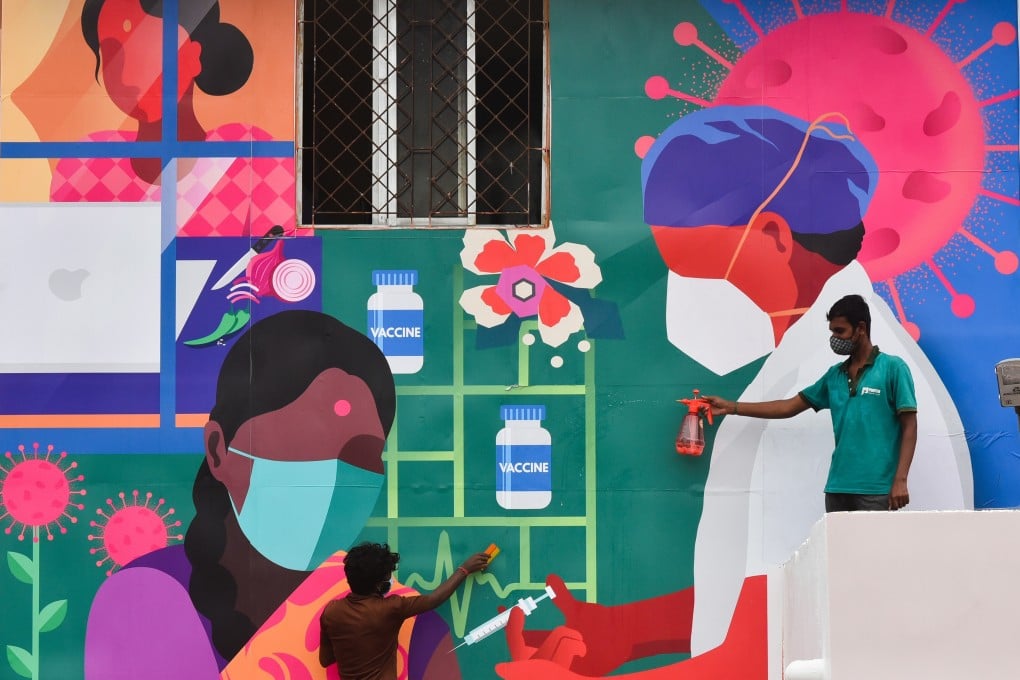India’s Covid-19 widows: a tale of grit and resilience in the face of despair
- The country’s deadly second wave has widowed thousands of women, who are struggling to return to some semblance of a normal life
- In India’s deeply patriarchal system, where remarriage for women is frowned upon and widowed mothers are treated with disdain, many are in dire straits

Farhana Sultana has her eight-day-old baby in her hands, while her two other children – aged five and seven – play outside her tiny house in the western Indian city of Pune. None of the little ones are aware they are fatherless, though it has been two months since the death of Sultana’s husband.
“I was pregnant when he passed away in late April. My children still think their father is in the hospital,” the 31-year-old said.
Despite the numbness in her voice, Sultana’s resolve to fight for survival for the sake of her children is unmissable.
Sultana is part of a programme launched by the United States-based non-profit IC3 Institute to give newly widowed women the skills needed to join the labour force.
“I’m trying to move on but I’m unable to,” she said. “All I need to do at the moment is to feed my kids.”